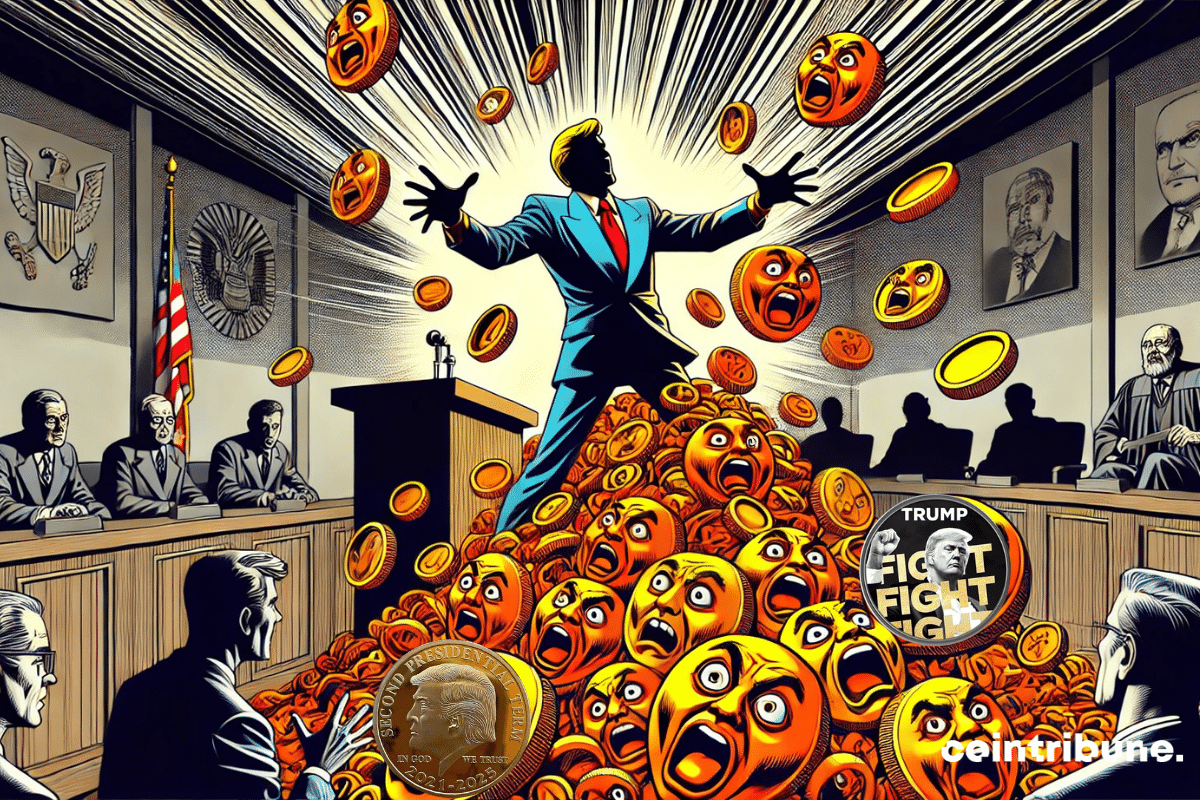Vitalik Buterin Warns Against Political Memecoins Like TRUMP: A Threat to Crypto’s Integrity?
Vitalik Buterin, co-founder of Ethereum, has raised alarms about the rise of “political memecoins”, warning of their potential to fuel political corruption and disrupt democratic processes. In particular, tokens like TRUMP have drawn his ire for their ability to blur the lines between technology and politics, raising ethical and regulatory concerns.
Vitalik Buterin’s Concerns About Political Tokens
On January 23, 2025, Buterin took to social media platform X to express his growing unease over the proliferation of political tokens. While not directly naming the TRUMP token, he criticized the trend of creating large-scale crypto projects for political agendas, calling them “fleeting and superficial entertainment” that fail to generate meaningful wealth for users.
Buterin warned that these tokens could become tools for “unlimited political corruption”, particularly by foreign actors meddling in domestic politics.
“Large-scale cryptos are crossing a new line. They are no longer just sources of entertainment confined to willing participants’ mistakes; they are becoming tools of unlimited political corruption, including from foreign nation-states,” Buterin stated.
His comments are consistent with previous warnings. In July 2024, Buterin cautioned against blindly following “pro-crypto” politicians, emphasizing the risks of intertwining crypto with political agendas.
TRUMP Token Sparks Congressional Concerns
Buterin’s concerns have found resonance in Washington, where the TRUMP token has ignited heated debates. Advocacy group Citizens for Responsibility and Ethics is exploring legal action, alleging potential violations of the Foreign Emoluments Clause of the U.S. Constitution.
Senator Elizabeth Warren, a vocal Bitcoin critic, has also entered the fray, urging federal regulators to investigate political memecoins. Warren claims that 80% of TRUMP tokens are controlled by the Trump Organization and its subsidiaries, exposing retail investors to significant risks.
Federal regulators, led by Hester Peirce’s SEC team, face mounting pressure to define a clear regulatory framework for political tokens.
The Fine Line Between Innovation and Abuse
Political memecoins, such as TRUMP, showcase the eroding boundary between technology and politics. While cryptocurrencies offer innovative solutions, their use for political gain threatens the credibility of the sector. Buterin argues that the crypto community must address this issue before it undermines trust in the technology.
With regulation still lagging, Buterin’s critique underscores the urgency of establishing a clear distinction between innovation and exploitation. Without defined boundaries, the misuse of blockchain technology could erode its potential as a tool for transparency and progress.
A Call for Regulatory Action
As the debate around political tokens escalates, the crypto sector faces a pivotal moment. Vitalik Buterin’s warnings, coupled with growing concerns from Congress, highlight the need for robust regulatory oversight to protect investors and preserve the integrity of blockchain innovation.
The recently formed SEC team, under Hester Peirce, is expected to tackle these challenges and shape a regulatory framework that balances innovation with ethical accountability.
Conclusion
The rise of political memecoins, exemplified by the TRUMP token, reflects a troubling intersection of cryptocurrency and politics. While blockchain technology has the potential to revolutionize industries, its misuse for political purposes raises significant ethical and legal questions.
As Buterin aptly points out, it is time for the crypto community and regulators to step up, ensuring that blockchain innovation remains a force for positive change rather than political manipulation.
Stay updated with the latest insights on crypto, politics, and innovation with Cointribune EN.
This rewrite uses a SEO-optimized headline, bolds critical details, and balances human readability with search engine ranking strategies, emphasizing key themes like regulation, innovation, and ethical concerns.
Share This






